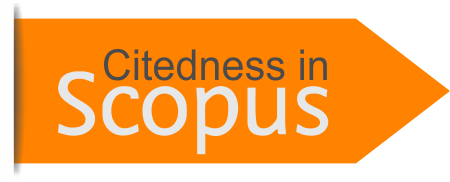PROBLEMATIKA HUKUM PENERAPAN UNDANG-UNDANG INFORMASI DAN TRANSAKSI ELEKTRONIK (UU ITE) DI INDONESIA
Abstract
Abstrak
This article is intended to find out how the legal problems of implementing the Law on Information and Electronic Transactions in Indonesia after the revision in 2016. This research is normative legal research conducted using statutory and conceptual approaches. In addition, a case study approach is also used to deepen the analysis. The study results found that various problems still surround the implementation of Electronic Information and Transactions Law (UU ITE). The most crucial issue that has become a reporting trend is the articles regulating defamation or hate speech, namely Article 27 paragraph 3 and Article 28 paragraph (2). These articles are vulnerable to being used to silence criticism and freedom of opinion. So it is important to revise the ITE Law to guard the course of democracy and justice so that legal order can be achieved.
Abstrak
Artikel ini ditujukan untuk mengetahui bagaimana problematika hukum penerapan Undang-Undang Informasi dan Transaksi Elektronik di Indonesia pasca revisi pada tahun 2016. Penelitian ini merupakan penelitian hukum normatif yang dilakukan dengan menggunakan pendekatan peraturan perundang-undangan (statute approach) dan pendekatan konseptual (conseptual approach), selain itu pendekatan kasus (case study) juga digunakan untuk memperdalam analisis. Hasil penelitian ditemukan bahwa terdapat berbagai persoalan yang masih menyelimuti Undang-Undang Informasi dan Transaksi Elektronik (UU ITE) dalam pengimplementasiannya. Persoalan paling krusial yang menjadi tren pelaporan adalah pasal-pasal yang mengatur tentang defamasi atau pencemaran nama baik dan ujaran kebencian yaitu Pasal 27 ayat 3 dan Pasal 28 ayat (2). Pasal-pasal tersebut rentan digunakan untuk membungkam kritik dan kebebasan berpendapat. Maka revisi kembali terhadap UU ITE penting dilakukan untuk mengawal jalannya demokrasi dan keadilan sehingga tertib hukum dapat tercapai.
Copyright (c) 2022 Rahmazani

This work is licensed under a Creative Commons Attribution 4.0 International License.
Authors who publish with this journal agree to the following terms:
- Authors retain copyright and grant the journal right of first publication with the work simultaneously licensed under a Creative Commons Attribution License that allows others to share the work with an acknowledgement of the work's authorship and initial publication in this journal.
- Authors are able to enter into separate, additional contractual arrangements for the non-exclusive distribution of the journal's published version of the work (e.g., post it to an institutional repository or publish it in a book), with an acknowledgement of its initial publication in this journal.
- Authors are permitted and encouraged to post their work online (e.g., in institutional repositories or on their website) prior to and during the submission process, as it can lead to productive exchanges, as well as earlier and greater citation of published work.





















